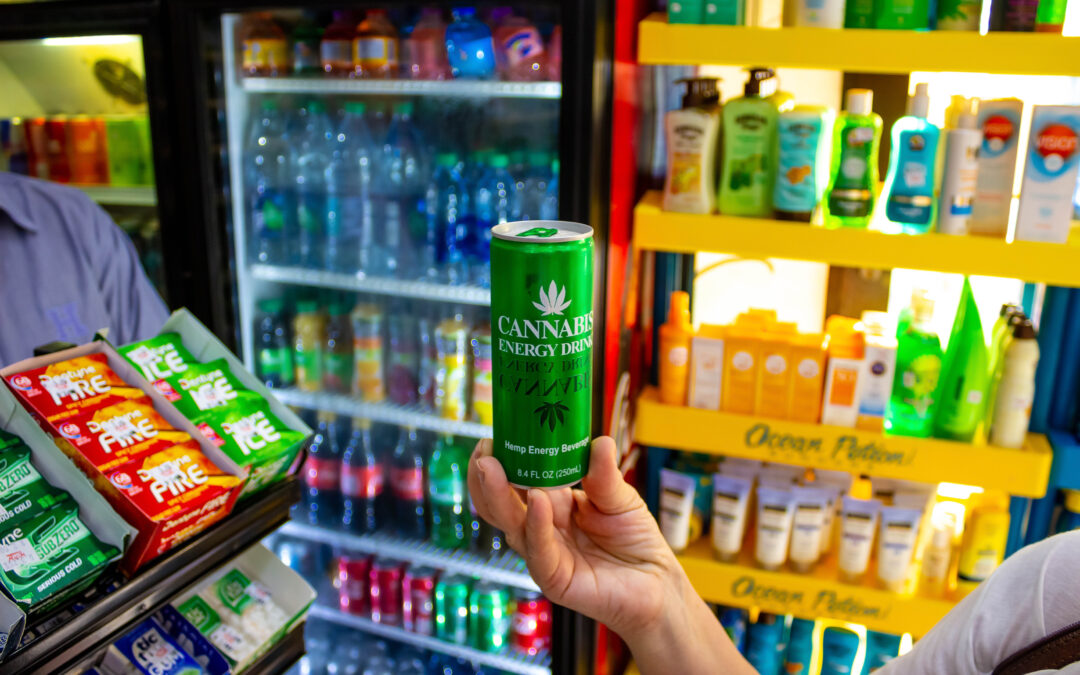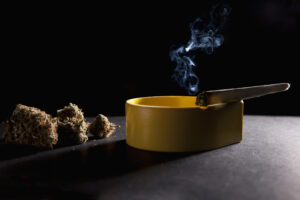Part of the government funding bill that President Donald Trump just signed is new regulation on hemp-derived THC products, marking a major victory for public health and safety.
What changed?
There had been a dangerous loophole in the 2018 Farm Bill, which allowed intoxicating products like Delta-8 THC and “gas station weed” to be sold legally and largely unregulated across the country. This new law now caps hemp-derived THC content at 0.4 milligrams per container. Non-intoxicating CBD products are still legal under this new law.
This ban on intoxicating hemp products effectively removes these psychoactive and addictive products from the commercialized market while still protecting access to non-intoxicating CBD products and industrial hemp, and ensuring responsible use of hemp without undermining public health and safety.
What’s banned?
Importantly, the new language bans the sale of “intermediate” hemp-THC products such as powdered or capsule forms that could be mixed into drinks or candy-like items, often appealing to youth. By doing so, Congress has taken a proactive step to prevent the kind of deceptive and dangerous marketing tactics that have turned hemp-derived THC products into a backdoor to intoxication.
This targeted, balanced approach keeps the original intent of the Farm Bill — to support agricultural innovation — intact while closing the loopholes exploited in today’s current climate.
What’s the effect?
This new hemp-THC ban prioritizes the safety of children, consumers, and communities over profit-driven exploitation. THis is a smart, science-based move that reinforces public health protections while preserving legitimate hemp production.
The recent federal action cracking down on the hemp loophole and “gas station weed” was a major step forward for public health. Now it’s time for Pennsylvania to do the same by addressing the dangers of the commercial marijuana industry and the current loopholes leading to high-potency THC products threatening our communities.
On the state level, this should include:
- Rejecting Senate Bill 120: Legalizing marijuana for non-medical (recreational) use would turn Pennsylvania’s government into a profiteer of addiction; taxing and promoting high-potency drugs to fund the very harms they cause. Lawmakers should refuse to let public health become collateral damage in the vain pursuit of revenue.
- Stopping Senate Bill 49: This bill (taken directly from Senate Bill 120) will result in handing pro-recreational legalization officials control of a new, appointed Cannabis Control Board, while also setting up a fund to directly pay for marijuana use.
It can also become a vehicle to add non-medical (recreational) marijuana legalization. It’s backed by the marijuana industry and fails to prioritize responsible governance.
Note: With the new federal regulations in effect, a new bureaucratic body is not needed to control the proliferation of “gas station weed”. - Passing a similar hemp-THC state ban: Align Pennsylvania with the new federal guidance to remove psychoactive and addictive hemp-derived THC products from the commercial market by capping hemp-derived THC content at 0.4 milligrams per container.
- Fixing the broken Medical Marijuana Program: Crack down on “rubber-stamped” medical cards and those physicians gaming the system by loosely approving cards in record numbers. Review qualifying conditions for proper limits and set THC potency limits to protect patients and prevent abuse. Pennsylvania’s medical system should serve legitimate patients — not be exploited or turned into a pipeline to full legalization.
Pennsylvania’s leaders should follow the federal government’s lead and prioritize public health and child safety over an industry that profits from addiction. Strengthening safeguards now will protect families, reduce harm, and keep Pennsylvania from sliding toward commercialized recreational marijuana.
You can make a real difference right now. Contact your state senator and representative today and urge them to reject Senate Bill 49 and any attempt to hand the marijuana industry more power in Pennsylvania.
Watch Dan Bartkowiak’s ABC interview below.




